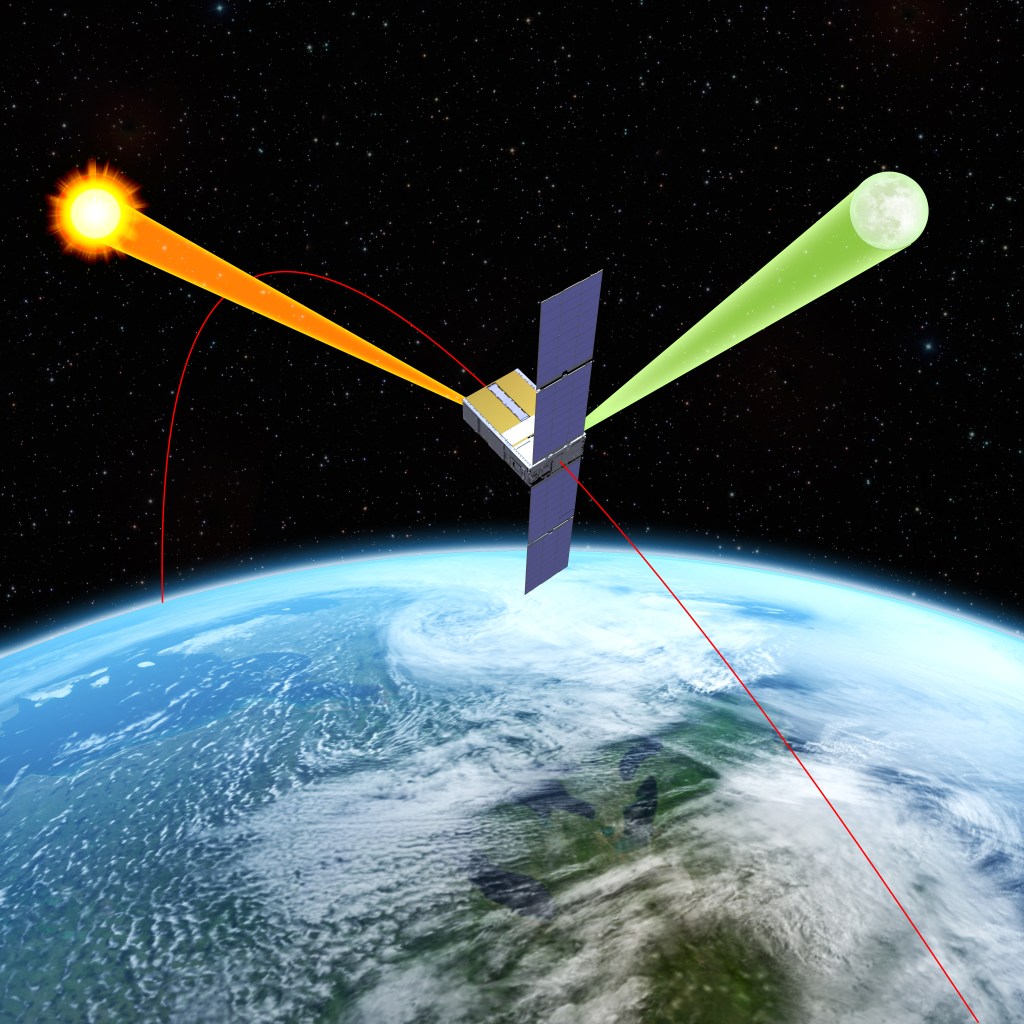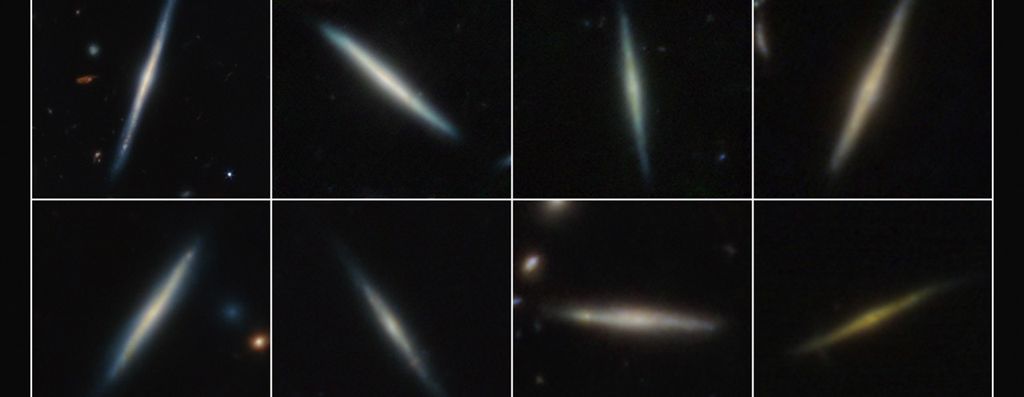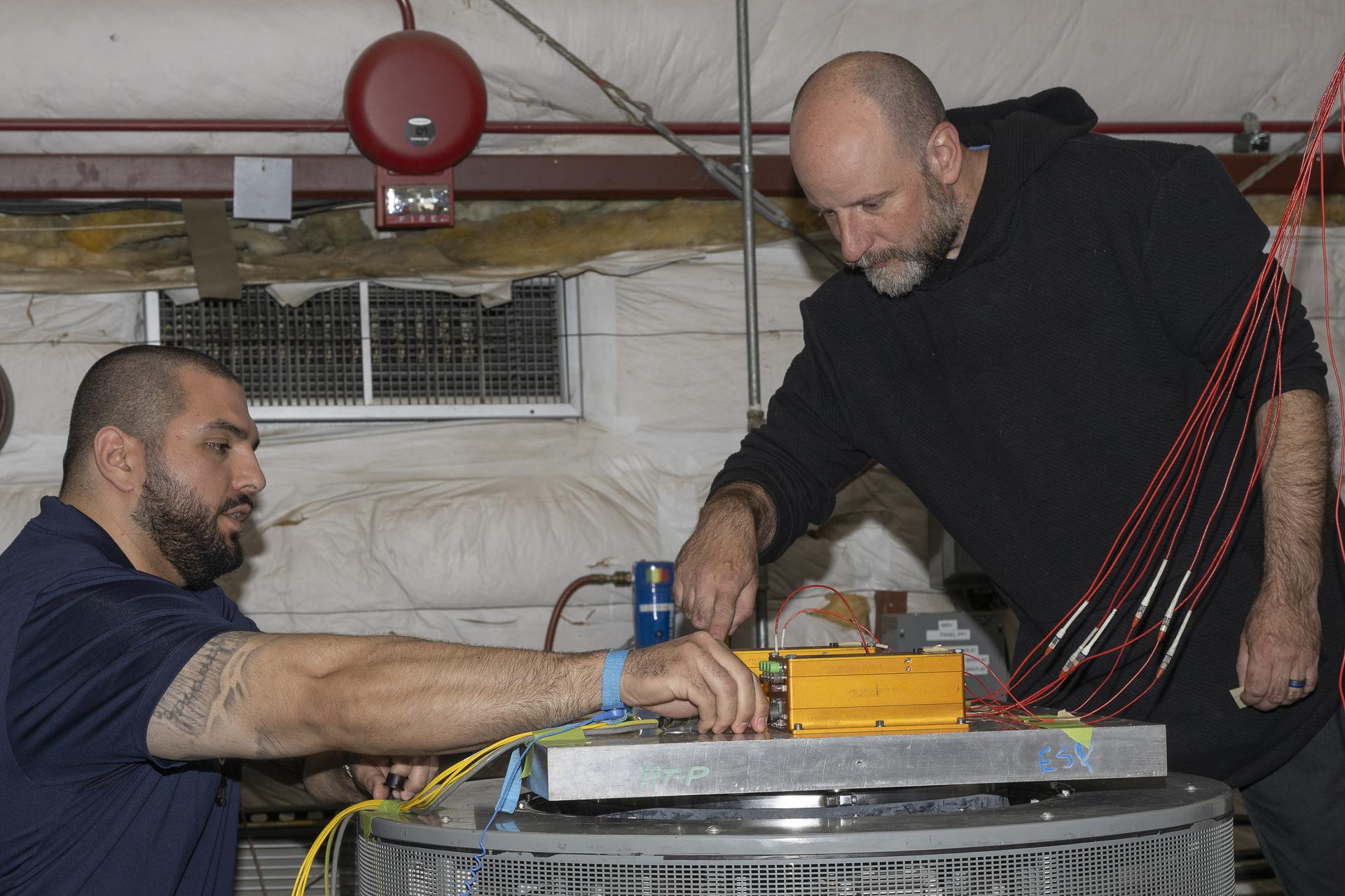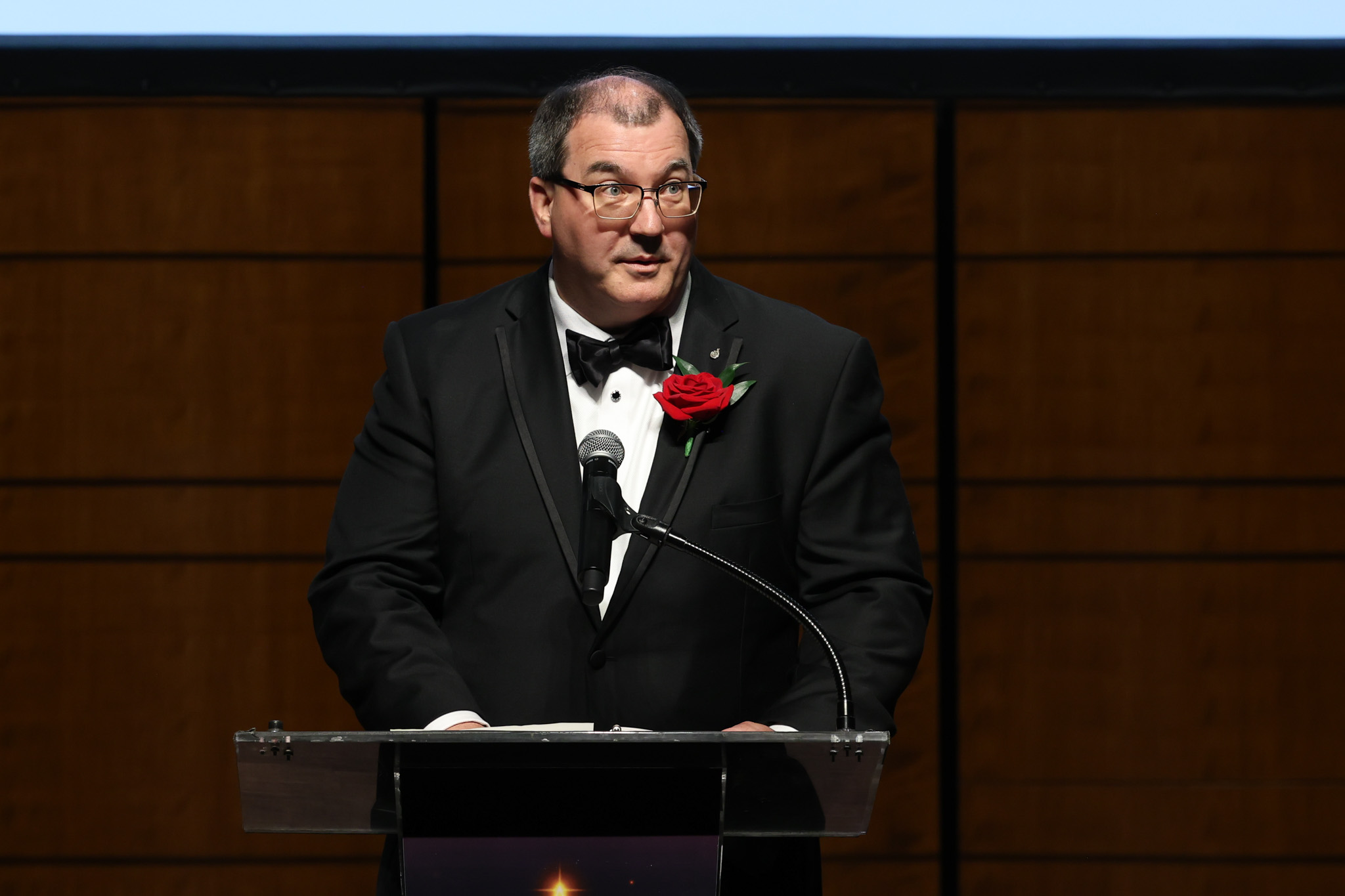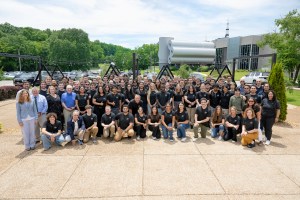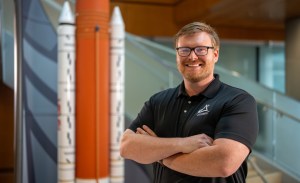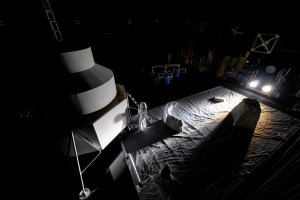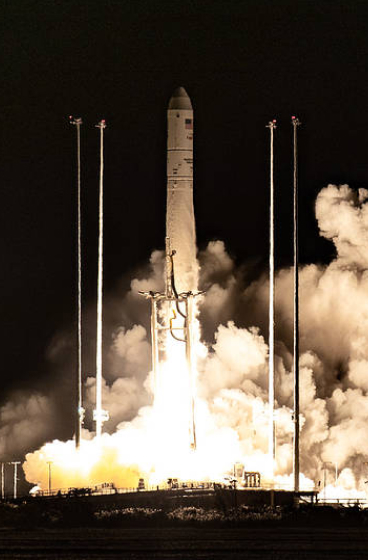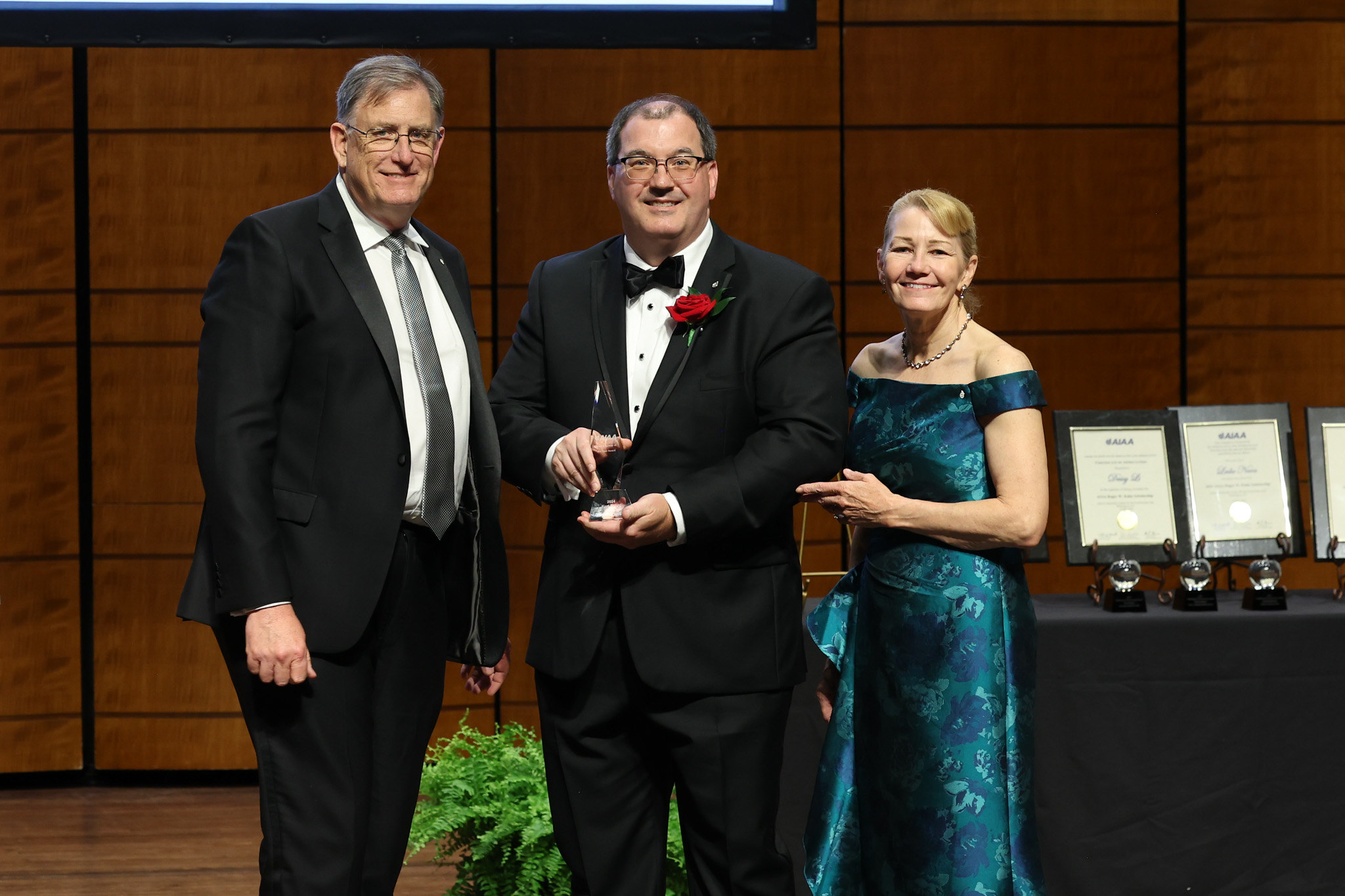
By Daniel Boyette
Advanced space nuclear propulsion systems are critical to NASA’s Moon to Mars vision. On May 15, one of the individuals at the forefront of those future exploration efforts was honored for his contributions.
Kurt Polzin, chief engineer for the Space Nuclear Propulsion Office at NASA’s Marshall Space Flight Center in Huntsville, Alabama, received the American Institute of Aeronautics and Astronautics (AIAA) Engineer of the Year award during its awards gala at the John F. Kennedy Center for Performing Arts in Washington.
“The use of nuclear technologies will become increasingly important as the nation returns humans to the Moon and then goes onward to Mars, and realizing these benefits will take not just a NASA effort, but a national effort,” Polzin told the audience. “It’s a privilege to work with and lead some of the best people in government, industry, and academia, bringing the nation closer to a future where nuclear power and propulsion technologies in space become common. What we do today will enable science missions and human exploration beyond anything humans have ever achieved for current and future generations of scientists and explorers.”
Since 2021, Polzin has overseen NASA’s nuclear propulsion technology development and maturation efforts. He’s also the chief engineer for the agency’s partnership with the Defense Advanced Research Projects Agency (DARPA) on the Demonstration Rocket for Agile Cislunar Operations (DRACO) program, which aims to demonstrate a nuclear thermal propulsion system in space as soon as 2027.
“To live and work on the Moon, we’ll need a power and transportation infrastructure, and nuclear space systems offer key capability benefits over current state-of-art,” said Anthony Calomino, NASA’s Space Nuclear Technologies portfolio manager under the agency’s Space Technology Mission Directorate. “Kurt’s leadership in this journey to mature our space nuclear propulsion technology is what will get us there. We are proud to see him recognized as AIAA’s Engineer of the Year.”
Q&A with Kurt Polzin
Q: What were your emotions when you went to accept the award?
Polzin: The list of those who have previously received this award is long and illustrious, so it is an honor to be nominated for it. Being selected by my peers as the recipient was a very thrilling and humbling experience. Receiving it at the Kennedy Center, in the presence of many aerospace leaders and my wife in the audience, made it a truly unique and memorable experience.
Q: You’ve previously stated that individual awards are really team awards. How has being a member of a team helped you to be successful?
Polzin: Realizing big ideas requires the contributions and expertise of many people across a range of skills and disciplines, and using nuclear technologies in space is about the most significant idea there is. The team we assembled and continue to grow consists of true experts in their disciplines. I constantly rely on them to ensure we are asking the right questions and making investments to advance our capabilities and position the nation for success.
Q: What excites you most about the future of space exploration?
Polzin: In my lifetime, we have never been closer to fully realizing the benefits of nuclear power and propulsion in space. We now have the potential to cross the threshold and open a new era where nuclear technologies will bring about truly transformational change in how we approach all aspects of space exploration.
Before his current role, Polzin was the Space Systems Team lead in Marshall’s Advanced Concepts Office. He joined NASA in 2004 as a propulsion research engineer.
Polzin has a doctorate and a master’s in Mechanical and Aerospace Engineering from Princeton University in New Jersey and a bachelor’s in Aeronautical and Astronautical Engineering from Ohio State University in Columbus.
He authored or co-authored over 140 publications, including a recently published monograph, and he holds six U.S. patents. He has also been an adjunct professor at the University of Alabama in Huntsville for many years, teaching graduate-level courses in physics and engineering.
Polzin’s other honors include the AIAA Sustained Service Award, the AIAA Greater Huntsville Section’s Martin Schilling Outstanding Service and Earl Pearce Professional of the Year, and multiple NASA Patent, Special Service, and Group Achievement awards. He is an associate fellow of AIAA and a senior member of the Institute of Electrical and Electronics Engineers.
NASA’s Space Technology Mission Directorate funds the SNP Office.
With nearly 30,000 individual members from 91 countries and 95 corporate members, AIAA is the world’s largest technical society dedicated to the global aerospace profession.
For more on Space Nuclear Propulsion, visit:
https://www.nasa.gov/tdm/space-nuclear-propulsion/
For more on Marshall Space Flight Center, visit:
https://www.nasa.gov/marshall/
Ramon J. Osorio
Marshall Space Flight Center, Huntsville, Alabama
256-544-0034
ramon.j.osorio@nasa.gov









